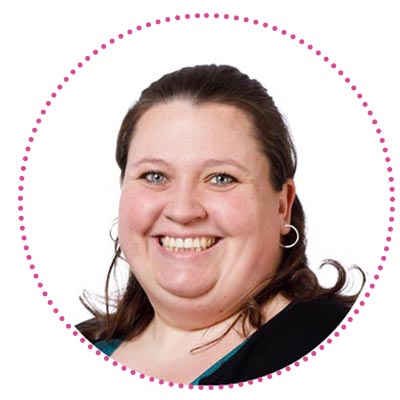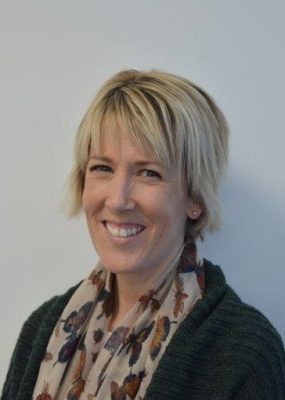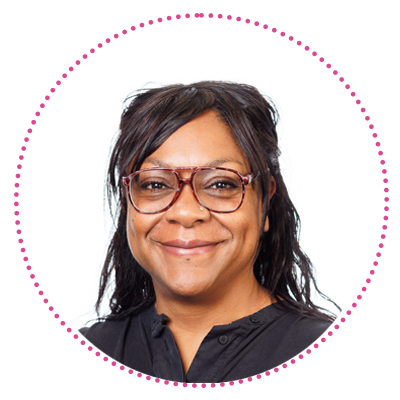Advice For Schools
Getting On-Entry Assessment ‘Right’ in the EYFS
We know that getting assessment right in the EYFS is important, but it is so crucial that we get it right from the start! Children develop so quickly in the first five years of their life so let us get these foundations in learning right.
This blog is to just to remind us about the principles that underpin reliable and accurate assessments in the EYFS. I hope it will help us to stop and think about what is at the heart of ‘Assessment for Learning:’
- Where our children are?
- Where we want them to be?
- How are we going to get them there?
Remember to refer to the EYFS statutory framework and the non-statutory guidance, Development Matters. I would also recommend referring to the document – What to expect, when?
These documents will support you in making those ‘best-fit’ judgements about where a child is showing ‘typical levels’ of development for their age, maybe a risk of delay or beyond levels of development for their age.
I am now going to explore four key principles of how to ensure that we are getting on-entry assessment right in the EYFS…
1. Observation and Interaction
Take a moment and reflect on these key questions;
- Are your assessments based primarily on your knowledge of the child?
- Is this knowledge gained primarily from observation and interaction in a range of daily activities and events?
Observing is more than watching a child, it is about tuning in, finding out what they are interested in, how they learn, striving to understand their actions and their thoughts.
Remember – assessments are an effective method of evaluating observations! Some will be planned but it is those ‘spontaneous’ observations that provide an insight into a child’s learning.
We need to ‘tune in’, observe and then assess so that we can plan relevant and motivating learning experiences for each child. Whether that is ‘planning’ in the moment or enhancing the continuous provision. Refer to the ‘Moment by moment’ cycle on page 3 in the Development Matters Booklet as it just reminds us about how we are observing, assessing and planning in the moment all of the time.
This then leads into the discussion of child-led and adult-led learning. I highly recommend this fantastic podcast by Julie Fisher about adult child interaction. Julie has also written a really useful book called Interacting or Interring.
The podcast will help you reflect on the importance of child-led learning to gage accurate assessments.
Remember, look at the child’s patterns of outcomes across the seven areas of learning. What are those patterns telling you? Look at their assessments for communication and language and how they link across all areas of learning.
For accurate assessment it is crucial to obtain a holistic view of the child’s learning and development by having conversations with people from a range of perspectives, including parents/carers, relevant adults and the child.
You should also have conversations with the child’s previous setting and if needed, outside agencies. It is using all this knowledge of the child together with responsible pedagogy that will support those accurate assessments
2. Responsible Pedagogy
We know that for us to accurately assess in the EYFS, we need to have a good understanding of how children develop.
What knowledge and understanding of child development do you and your practitioners have in your settings?
What experience do you and other adults have of working with young children?
For us to implement these aspects of pedagogy and provision we need a thorough understanding of ‘how children learn’ which is referred to in the statutory framework as ‘The characteristics of effective learning’.
Engagement – Motivation – Thinking
Children will display ‘how’ they learn through child-initiated activities, so it is crucial that practitioners provide a rich environment that enables children to develop and show them what engages and motivates them in their learning.
Please ensure that you are observing activities that the child have initiated rather than focusing on what children do when prompted.
Children with effective learning characteristics.
- Are willing to have a go
- Are involved and concentrating
- Have their own ideas
- Choose ways to do things
- Find new ways of doing things
- Enjoy achieving what they set out to do
When children are carrying out child-led learning, we know that they are at a deep level of learning which then enables learning to be embedded.
3. Embedded learning
We want our children to remember!
We now know a lot more about how we learn, and cognitive science is confirming this all of the time.
The Ofsted Education Inspection Framework is underpinned by research around cognitive science and for us to stop and think what we want our children to…
-
- Know
- Remember
…so that they can use this for life long learning.
Some key questions for reflection…
- Is your school’s curriculum coherently planned and sequenced from the beginning of Nursery?
- Does it build on what children know and can do from the beginning of the EYFS, towards cumulatively sufficient knowledge and skills for their future learning?
- What are the children learning today, how did this build on from yesterday and what opportunities can I provide to strengthen and deepen their current learning tomorrow?
This can only happen if you accurately assess your children and provide a learning environment that enables children to show you what they understand, know and can do. It is about a whole school approach linking to the four themes of the EYFS statutory framework;
- Unique child
- Positive relationships
- Enabling environments
- Learning and development
Linking to everything that I have explored so far it is about you and your EYFS team knowing how this would look in the EYFS.
Something now to reassure yourself and your practitioner…
Whenever, we interact with children we are ‘teaching’ them. A useful definition of ‘Teaching in the EYFS’ is a footnote 103, p. 80 of the Ofsted School Inspection Handbook. This definition will be included in the new EYFS Framework that will become statutory in September 2021.
Teaching should not be taken to imply a ‘top down’ or formal way of working. It is a broad term that covers the many different ways in which adults help young children learn. It includes: their interactions with children during planned and child-initiated play and activities, communicating and modelling language, showing, explaining, demonstrating, exploring ideas, encouraging, questioning, recalling, providing a narrative for what they are doing, facilitating and setting challenges. It takes account of the equipment that adults provide and the attention given to the physical environment, as well as the structure and routines of the day that establish expectations. Integral to teaching is how practitioners assess what children know, understand and can do, as well as taking account of their interests and dispositions to learn (characteristics of effective learning), and how practitioners use this information to plan children’s next steps in learning and to monitor their progress.
Share this definition with the whole school and parents as every interaction is a ‘teachable’ moment.
4. Contributions from a range of perspectives
To ensure that you are able to gain a holistic view of the child’s learning and development, it is crucial that you have a range of perspectives from parents, relevant adults and the child.
Make sure that you are involving the children fully within their own assessment.
- Provide opportunities so that children have time to communicate and review their own learning with you and other practitioners.
Parents are the child’s first educators!
Speaking as a parent myself, I have such an insight into my own children’s interests, how they learn and what they demonstrate to me at home. I appreciate it can be hard to communicate with parents especially if there is a language barrier. There are very good apps now that can translate for you or if there is an older sibling they can be a great help too!
Just remember… Communication, communication, communication!
Summary.
We’ve established that when considering effective assessment there are different aspects that we need to consider. (I could write so many more suggestions!)
At the heart of ‘assessment’ is the child. Take a moment to reflect and consider how best to support your children so that assessment on entry is carried out accurately. This will ensure that learning is built upon and new learning opportunities can take place.
For more advice, please head over to the EYFS Newsletter or I recommend reading the following blogs:
- Why is Effective Transition in EYFS So Important in these Unprecedented Times?
- What Does ‘Teaching’ Look Like in the EYFS?
More information
I am (clearly) very passionate about effective practice and provision in the EYFS. I would love to share my knowledge and passion for ensuring that all children are provided with a quality education. If you are interested, I am carrying out the following courses:
Get in touch with us at hello@servicesforeducation.co.uk
About the Author
Serena Caine – Adviser, Services For Education
Serena works as an Education Adviser for Services for Education and over the past ten years she has largely worked on EYFS CPD training, School Improvement and Profile moderation. She became an accredited EYFS profile moderator in 2009 and leads a team of 15 experienced teacher based moderators for the EYFSP statutory duty on behalf of Birmingham LA.
Serena’s began teaching over 25 years ago and has extensive experience, particularly of working with children in the early Years.
She firstly qualified as a Nursery Nurse; then completed a BA (hons) and PGCE in Early Years (0-8) and during her teaching career she taught EYFS, Key stage one and two so has a wide breath of experiences. Due to her interest in education research when she was teaching she completed an action research MA in Education which focused on eyfs and assessment.
Serena is extremely passionate about providing all children with quality early years education so that they can build on their strong foundations for future life long learning.


 Lucie Welch – Adviser, Services For Education
Lucie Welch – Adviser, Services For Education

 Marsha
Marsha 


